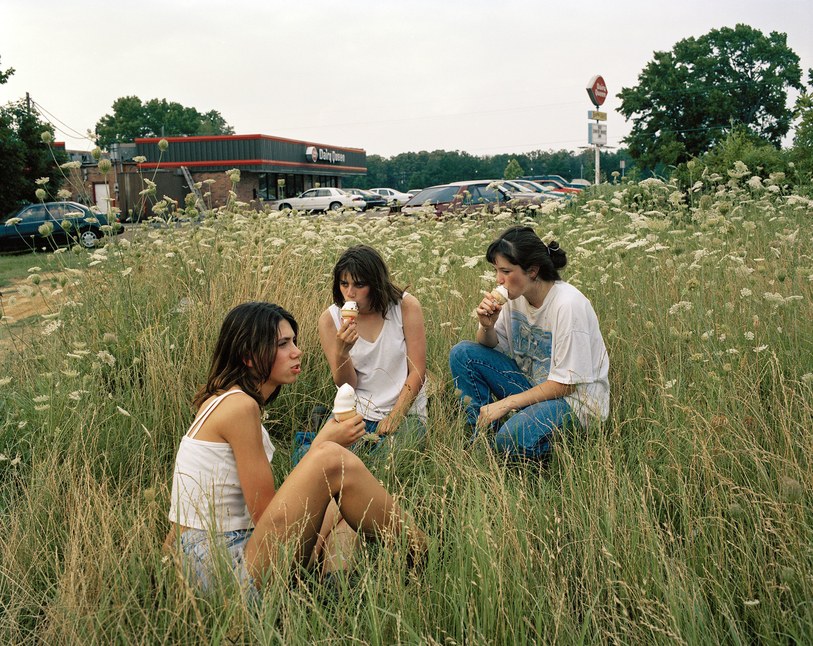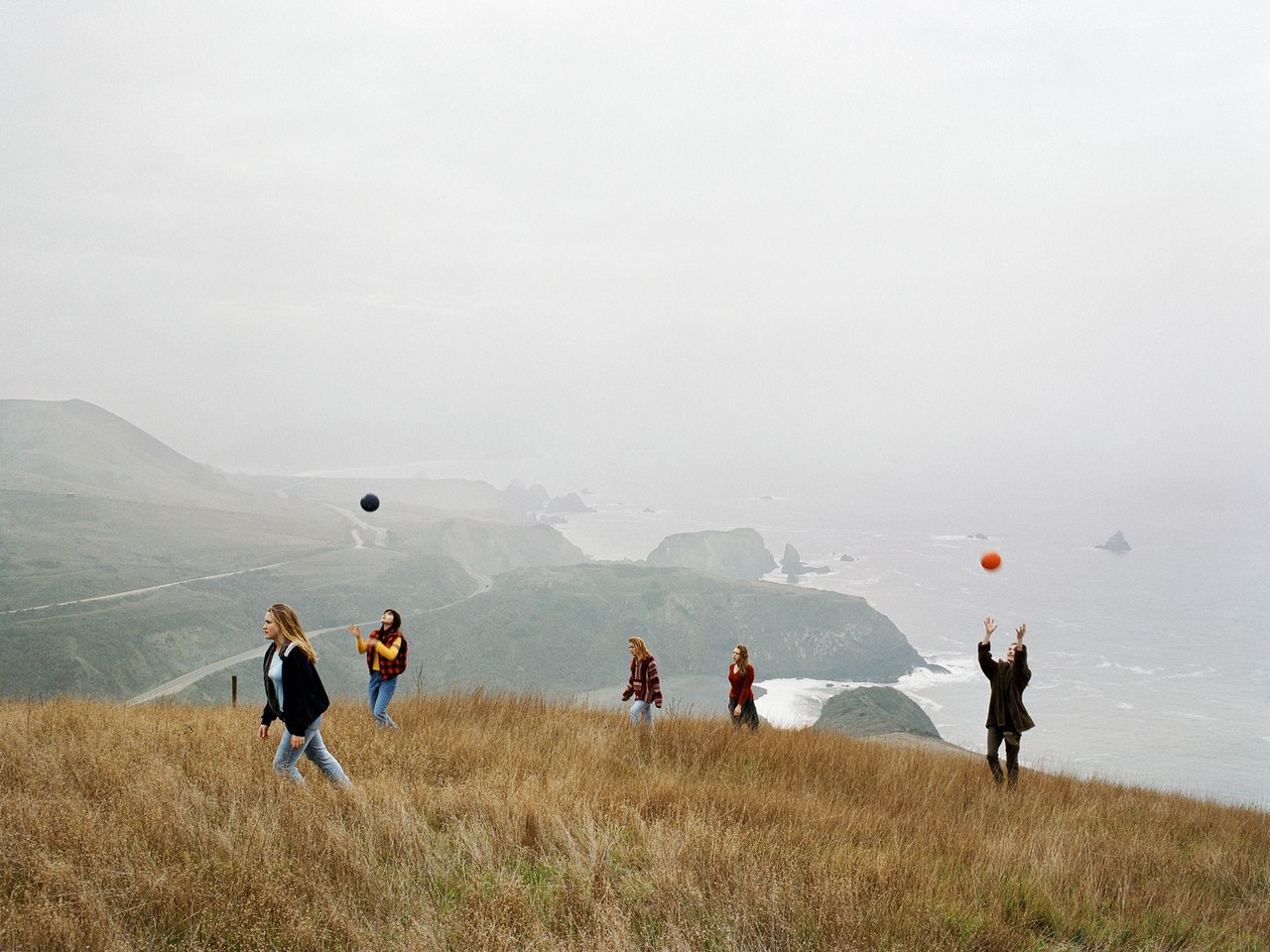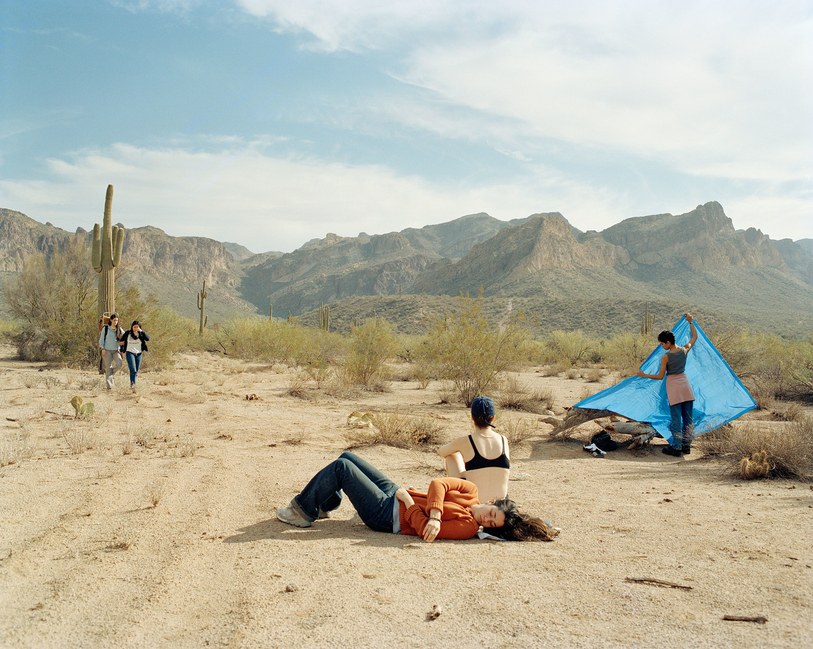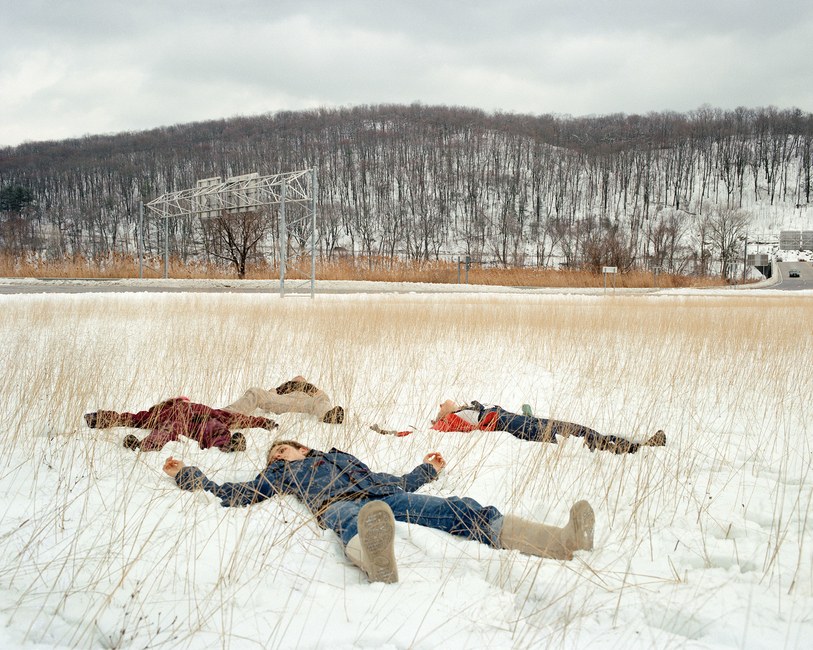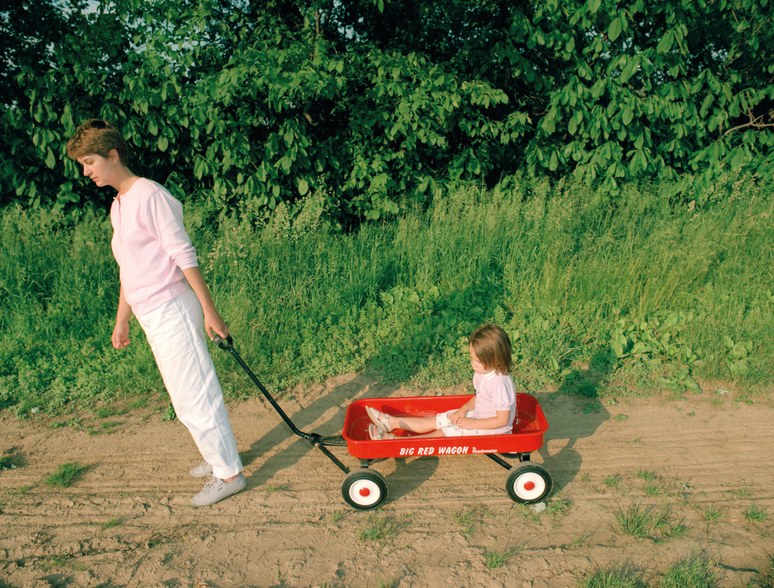When the plowblade struck
An old stump hiding under
The soil like a beggar’s
Rotten tooth, they swarmed up
& Mister Jackson left the plow
Wedged like a whaler’s harpoon.
The horse was midnight
Against dusk, tethered to somebody’s
Pocketwatch. He shivered, but not
The way women shook their heads
Before mirrors at the five
& dime—a deeper connection
To the low field’s evening star.
He stood there, in tracechains,
Lathered in froth, just
Stopped by a great, goofy
Calmness. He whinnied
Once, & then the whole
Beautiful, blue-black sky
Fell on his back.
- by Yusef Komunyakaa
Monster
The train, which I took back
across the great plain,
I tell you, it was a monster
with a swollen belly.
It had a lair in Pulawy,
ravened in Warsaw;
children greeted it
and it swallowed them.
Now they’re playing together—
the boys from the blocks,
the girls with the matches,
Aesculapius in palaestra.
Their parents have managed
to toss each one a toy:
hamsters in an aquarium,
A PlayStation, and a stamp album.
The parents are getting older,
longing consumes them,
now it’s they who come
to greet the travelers.
They look at their watches
through dark glasses,
and would like to light up,
but where’s the fire?
Until the icebreaker Sadness
weighs anchor.
Until the Summer School
of Common Language begins.
I was there, I know what I’m saying,
it was a thick monster—
the train, which I took back
across the great plain.
- by Dariusz Sosnicki
(Translated from the Polish, by Piotr Florczyk and Boris Dralyuk)
The Road
Better a monosyllabic life than a ragged
and muttered one; let its report be short
and round like a rifle, so that it may hear
its own echo in the surrounding silence.
THOREAU
A life: pared to the bone.
Think of a room with no
chair, no bed. Like a monk,
I sit on a black square
in a patch of light.
In my mind, I sit there.
Or, a life on the road
that takes me here, there,
the trees in fall so bare.
And I with just
the rags on my back,
a gnarled stick to lean on.
Your life, held next
to mine, is rich and fat.
You walk with a pack
and wear a big straw hat
that blocks the sun.
You like things loud,
loud songs, and beat
a drum as you walk.
Hoooo there! you call,
but I let you pass.
The days and years
mount up as I walk on
toward a word dark
as night, black as pitch,
still as a held breath.
A place where a night
bird sings. It sounds
like Keats so I stop.
I build a fire,
sleep like the dead,
dream of a bright star,
and wake at dawn,
the sweet bird gone.
Then rise, splash my face
from the stream. Up the road,
a few souls, gray as time,
stand in a patch of shade,
their arms held out.
So it was for this! I think,
This life, this road! This!
and run as I have never
run, back to the beginning,
the very beginning.
They are all
where I left them.
And there is so much to say.
- by Elizabeth Spires
Temple Example
The mind doesn't do what we want it to do.
Mine plays speed Scrabble; it sifts pages and pages
of pictures of shoes. Palmyra goodbye. Temple of Bel not a pun
but a ruin. A ruined ruin, a ruin sent to oblivion
on purpose. Who cares if I fold up at my desk
a heap of angry sorrow. Not any candidate,
no ambassador. Sign a petition? Email some senators?
I make nothing happen. I make
nothing but orders, seven-letter words, coffee
with the hard water from the oleander-pierced pipes
with their roaches and mud. A temple
stood for twenty centuries and today the New York Times
shows us its new life as dust. Baal is how they spell it.
A neat aerial square of nothing now. The world wants
what from us in reply to the hatred of the mind?
I should say "soul," I know, or "history" or "culture"
but probably only the mind can thwart destructions.
In America, the mind is also hated,
by whosoever sells us shoes and phones. We are subtle
here, give lots of money to the arts.
- by Sally Ball
Masts at Dawn
Masts at Dawn
Past second cock-crow yacht masts in the harbor go slowly white.
No light in the east yet, but the stars show a certain fatigue.
They withdraw into a new distance, have discovered our unworthiness. It is long since
The owl, in the dark eucalyptus, dire and melodious, last called, and
Long since the moon sank and the English
Finished fornicating in their ketches. In the evening there was a strong swell.
Red died the sun, but a dark wind rose easterly, white sea nagged the black harbor headland.
When there is a strong swell, you may, if you surrender to it, experience
A sense, in the act, of mystic unity with that rhythm. Your peace is the sea's will.
But now no motion, the bay-face is glossy in darkness, like
An old window pane flat on black ground by the wall, near the ash heap. It neither
Receives nor gives light. Now is the hour when the sea
Sinks into meditation. It doubts its own mission. The drowned cat
That on the evening swell had kept nudging the piles of the pier and had seemed
To want to climb out and lick itself dry, now floats free. On that surface a slight convexity
only, it is like
An eyelid, in darkness, closed. You must learn to accept the kiss of fate, for
The masts go white slow, as light, like dew, from darkness
Condensed on them, on oiled wood, on metal. Dew whitens in darkness.
I lie in my bed and think how, in darkness, the masts go white.
The sound of the engine of the first fishing dory dies seaward. Soon
In the inland glen wakes the dawn-dove. We must try
To love so well the world that we may believe, in the end, in God.
- Robert Penn Warren
Justine Kurland Photographs
ICU
For A.J. Verdelle
Those mornings I traveled north on I91,
passing below the basalt cliff of East Rock
where the elms discussed their genealogies.
I was a chaplain at Hartford Hospital,
took the Myers-Briggs with Sister Margaret,
learned I was an I drawn to Es.
In small group I said, “I do not like it—
the way so many young black men die here
unrecognized, their gurneys stripped,
their belongings catalogued and unclaimed.”
On the neonatal ICU, newborns breathed,
blue, spider-delicate in a nest of tubes.
A Sunday of themselves, their tissue purpled,
their eyelids the film on old water in a well,
their faces resigned in their see-through attics,
their skin mottled mildewed wallpaper.
It is correct to love even at the wrong time.
On rounds, the newborns eyed me, each one
like Orpheus in his dark hallway, saying:
I knew I would find you, I knew I would lose you.
- by Spencer Reese
Many years later, when everything was business,
when he worked harder than anyone in a country whose values are structured on hard work, he believed that life, true life, was something that was stored in music. True life was kept safe in the lines of Tchaikovsky's Eugene Onegin while you went out into the world and met the obligations required of you. Certainly he knew (though did not completely understand) that opera wasn't for everyone, but for everyone he hoped there was something. The records he cherished, the rare opportunities to see a live performance, those were the marks by which he gauged his ability to love. Not his wife, his daughters, or his work. He never thought that he had somehow transferred what should have filled his daily life into opera. Instead he knew that without opera, this part of himself would have vanished altogether.
- Ann Patchett, from bel canto
4 Photos - Michael Northrup
(https://newyorker.com/culture/photo-booth/the-life-span-of-a-photographers-marriage)
Prosser
In winter two kinds of fields on the hills
outside Prosser: fields of new green wheat, the slips
rising overnight out of the plowed ground,
and waiting,
and then rising again, and budding.
Geese love this green wheat.
I ate some of it once too, to see.
And wheat stubble-fields that reach to the river.
These are the fields that have lost everything.
At night they try to recall their youth,
but their breathing is slow and irregular as
their life sinks into dark furrows.
Geese love this shattered wheat also.
They will die for it.
But everything is forgotten, nearly everything,
and sooner rather than later, please God—
fathers, friends, they pass
into your life and out again, a few women stay
a while, then go, and the fields
turn their backs, disappear in rain.
Everything goes, but Prosser.
Those nights driving back through miles of wheat fields—
headlamps raking the fields on the curves—
Prosser, that town, shining as we break over hills,
heater rattling, tired through to bone,
the smell of gunpowder on our fingers still:
I can barely see him, my father, squinting
through the windshield of that cab, saying, Prosser.
- Raymond Carver
[Even deathly tired, the sun]
Even deathly tired, the sun
always finds the right position
to rise above the mountains.
Sharply, the olive wind splits
the foliage of alien trees.
At night, all-knowing luminous angels
pull the birdswarms ahead
between moon and waters.
Everything in Heaven, on Earth,
receives and obeys a wisdom
secretly conveyed.
Why not my heart, my brain and my sleep?
Why not my presumptuous tongue,
too short to say your name,
too long for silence.
Why does my heart not know out and not in,
why does my brain always think in circles?
Why does my sleep pass by yours
with the emperor-moths?
Why is the tongue too short and too long?
Bitterly it maims the sweetest name
and never climbs above sobbing's
lowest point to words of the heart.
- Christine Lavant
An Endless Story
I.
Halfway through the sentence
she fell asleep. She had been telling
some sort of fable concerning
a young girl who wakens one morning
as a bird. So like life,
said the person next to me. I wonder,
he went on, do you suppose our friend here
plans to fly away when she wakens?
The room was very quiet.
We were both studying her; in fact,
everyone in the room was studying her.
To me, she seemed as before, though
her head was slumped on her chest; still,
her color was good—She seems to be breathing,
my neighbor said. Not only that, he went on,
we are all of us in this room breathing—
just how you want a story to end. And yet,
he added, we may never know
whether the story was intended to be
a cautionary tale or perhaps a love story,
since it has been interrupted. So we can not be certain
we have as yet experienced the end.
But who does, he said. Who does?
II.
We stayed like this a long time,
stranded, I thought to myself,
like ships paralyzed by bad weather.
My neighbor had withdrawn into himself.
Something, I felt, existed between us,
nothing so final as a baby,
but real nevertheless—
Meanwhile, no one spoke.
No one rushed to get help
or knelt beside the prone woman.
The sun was going down; long shadows of the elms
spread like dark lakes over the grass.
Finally my neighbor raised his head.
Clearly, he said, someone must finish this story
which was, I believe, to have been
a love story such as silly women tell, meaning
very long, filled with tangents and distractions
meant to disguise the fundamental
tedium of its simplicities. But as, he said,
we have changed riders, we may as well change
horses at the same time. Now that the tale is mine,
I prefer that it be a meditation on existence.
The room grew very still.
I know what you think, he said; we all despise
stories that seem dry and interminable, but mine
will be a true love story,
if by love we mean the way we loved when we were young,
as though there were no time at all.
III.
Soon night fell. Automatically
the lights came on.
On the floor, the woman moved.
Someone had covered her with a blanket
which she thrust aside.
Is it morning, she said. She had
propped herself up somehow so she could see
the door. There was a bird, she said.
Someone is supposed to kiss it.
Perhaps it has been kissed already, my neighbor said.
Oh no, she said. Once it is kissed
it becomes a human being. So it cannot fly;
it can only sit and stand and lie down.
And kiss, my neighbor waggishly added.
Not anymore, she said. There was just the one time
to break the spell that had frozen its heart.
That was a bad trade, she said,
the wings for the kiss.
She gazed at us, like a figure on top of a mountain
looking down, though we were the ones looking down,
in actual fact. Obviously my mind is not what it was, she said.
Most of my facts have disappeared, but certain
underlying principles have been in consequence
exposed with surprising clarity.
The Chinese were right, she said, to revere the old.
Look at us, she said. We are all of us in this room
still waiting to be transformed. This is why we search for love.
We search for it all our lives,
even after we find it.
- Louise Gluck
I Did Not Know You, Moniack Mhor
but you have always been there
in one guise or another.
I trace the range of Strathfarrar
with my finger,
I draw the line of it in the air.
There is no sea, no sea here,
no Juno, Jupiter or Saturn
(the ships of my childhood).
At Moniack Mhor I lie with the bees,
their still bodies floating above me.
A horse rider clips in the lower valley,
curlews cry in my ear.
Hills fall behind hills,
behind hills. Moniack Mhor
is forever opening—
a gift of dry grass, crab clouds,
the green nest of furze slowly breaking apart.
Nightly the yellow almond buds
creep closer,
until I can taste them in the dark air.
- Marion McCready
Forward Slash
When I've lived too late in my life and everyone else's,
about the sun, in the end, I'll do anyway what ice does—
stays if it must, or goes—and I'll expect the outdoors
but get instead a room, along with the "is"
in "missing," the "in" in "forgetting," a few feelings
believed in, but just beside the point of having with ease,
with speed, seen pieces of what can't happen, ideas
so fast that only years, if that, could get them back please.
- Graham Foust
Osip
It's hard to comprehend
White horses
Did not arrive
In the end
Across the seas
Across the Urals
To where you are standing
Dead
But these days
I can tell you
On my word
I hear them
Clop clop clop
Tramping for you
The distance
Over these
New Soviet cities
Sighing chrome and silver
And coughing up nightsticks
Breathing in black windows
Breathing out white ribbons
- Alan Jude Moore
Qualm
Iridescent green flies on the dog shit scatter when I walk by.
I’ve never seen flies so vivid. Gorgeous, these shit-flies.
Someone sits on a park bench with head in hands.
A plot of ornamental grasses bends in resigned unison.
Helicopters overhead, how they move
like spirits with no conscience.
*
Patience. Rage and being told “be patient.”
The birds with orange heads and dust-colored bodies bob on the powerlines.
The poet explains a patient is “one who suffers.”
Beneath the underpass, a chair overturned in the fenced-in weeds
toward which a misplaced tenderness arises.
*
Each night, she says, and most mornings, refugees arrive.
Then ship off to Athens. Why would they want to stay, there’s nothing here.
*
Fog descended from the Pacific;
I took a bath with my biggest rock. A deity,
ancient, severe, rolling around in the bottom of the tub.
*
Nothing: a bookstore, a lotto place run by cousins, two bakeries, one
university, donated used baby clothes well-meaningly folded
and stacked, one detention center in the capital
road sign with the capital’s distance in kilometers spray painted FUCK
*
Where one bright aperture in the cloud has closed up
inner tubes and shoes and life vests on the shore.
My mother lives above this beach. She watches them.
*
After being asked for money by five separate people
an office supply truck passes, GIVE SOMETHING BACK across it.
I give five dollars to Ceci.
I gave two dollars to someone earlier, but he seemed disappointed.
I sit on a sunny curb in the parking lot, feeling useless, like a teenager.
Ha, who is American! my mother asks bitterly.
One of us looks down at the other.
Palm tree in the distance with the hair of a rocker dude.
*
My mother said fight.
She said they used to call her “the little Spañola.”
*
Photographs of water, like case studies.
How far away from yourself would you say you get?
When I swim the first time, I cannot call it pleasure.
‘Them’ here feels violent to me.
*
Three kids in the chilly light
of a convenience store’s back entrance
visible from the highway
between one California and another.
One squats looking at a phone,
two lean and smoke. Slouch
of interminable suburbia
interminable crap-jobs at fifteen
a flash, momentary as toward the city
we continue. As we do.
*
Four old paint drips
on the windowpane I look
at, not through.
Four old punctuation marks
a nearing helicopter cuts across.
I refuse to detail the humiliations that keep me up at night.
I am pulling a blanket over my head.
Or, I’m elated by 30 seconds of rain.
*
At the laundromat
churchlike, fastidiously polite,
I pair socks at the high counter,
plastic marbled to resemble marble
black, white, and blue.
A woman claims a whole row of washers
spacing five hefty trash bags
at even intervals, looking tired.
Here our delicates.
I sit down she gets up.
A stranger I want to convey kindness to.
The day opens like a compact,
mirror on one side
powder on the other.
- Ari Banias
Confronting Clayfeld
Pausing for breath on a large fallen tree,
Clayfeld must have been watching longer
than he realized, for now declining light
upon the snow-bedazzled mountaintop
reveals blue shades and purple shadows
down its crevices that guide his view
to where the thrusting tree line ends,
the swaying tips of evergreens.
And Clayfeld wonders if his sense
of this illuminated mountain's vast
impersonality can free him now
from being only who he is.
A measure of detachment from
his personal desires has broadened,
he believes, his own capacity
to care for animals and friends,
so that the very act of taking care
becomes for him its own reward.
How fortunate, he thinks, confronting his
deep longing to transcend himself, that he
is able to conceive of selflessness—
a thought which seems to come from somewhere
far beyond his own volition or his will
and takes the form of serendipity.
The very concept of a selfless self
is like a happening without a cause
which then inspires happiness,
though Clayfeld knows that happiness
remains contingent and ephemeral.
Yet Clayfeld chooses still to focus
on the paradox that he feels most himself
when he regards his life as if he might
have read it in a book—a life about
a lover waiting by a waterfall,
a credible alternative to what
he can remember of himself.
And, suddenly, out from the underbrush,
a startled moose emerges with its antlers
gleaming in a splotch of sun, its spittle
sparkling in its beard, smelling of urine
to attract a mate; his presence is
so overwhelming that shocked Clayfeld,
apprehending him, is shaken from his trance,
back to his solitary self.
He tastes his acid fear within his lungs
as its gigantic head, with flattened ears,
sways back and forth, about to charge
and trample him into the silent ground.
Clayfeld is flushed with the sensation of
his body's readiness to run or hide
behind a boulder or a hemlock tree
in caring for his one, his only life.
And yet in Clayfeld's overheated mind—
his mind reduced to his own dread—
he knows he is preparing to relate
his threatening encounter
with a stamping, wide-eyed moose
to a trustworthy friend—someone,
perhaps, who wonders why this story of
personal fear must mean so much to him.
- Robert Pack
Men as Friends
I have a few which is news to me
Tom drops by in the mornings with his travel
mug my mother would call it a coffee klatch
we review our terrible histories with fathers
and talk about the father he's become and how much
it will cost to replace gutters the ice brought down
and then there's soft-spoken Harvey
with whom I enjoy long pauses in conversation about how
they raised the Nelson town hall and put a foundation underneath
during which we both look up at Mt. Monadnock and then down
at the ground and then back at each other silence precipitating
the pretty weather we share before he goes inside for lunch
when I had to pack up my office Tom boxed
and loaded books into my car I didn't think he'd want to
but his idea of friendship includes carrying heavy things
at the dog park the retired Marine with the schnauzer
asked Do you have a husband? I replied I don't care for men
in that way as a Marine James mostly played cards
on a supply ship now he mostly hunts and fishes
climbs his orchard ladder for my Cortlands
and in trout season leaves, in my fridge, two rainbows
- Robin Becker
Parable of Flight
A flock of birds leaving the side of the mountain.
Black against the spring evening, bronze in early summer,
rising over blank lake water.
Why is the young man disturbed suddenly,
his attention slipping from his companion?
His heart is no longer wholly divided; he's trying to think
how to say this compassionately.
Now we hear the voices of the others, moving through the library
toward the veranda, the summer porch; we see them
taking their usual places on the various hammocks and chairs,
the white wood chairs of the old house, rearranging
the striped cushions.
Does it matter where the birds go? Does it even matter
what species they are?
They leave here, that's the point,
first their bodies, then their sad cries.
And from that moment, cease to exist for us.
You must learn to think of our passion that way.
Each kiss was real, then
each kiss left the face of the earth.
- Louise Gluck
"We are fighting for my silver soul
like Jacob & the angel
you are the angel
i am the young boy fighting for my life
i am the angel
you are the young boy fighting for your life
we mirror each other
like a beautiful face in the river
half of us is drowned
half of us is light
i reach into your soul & pull out the bone of my life..."
- from "Dead Baby Speaks," in Tender, by Toi Derricotte
